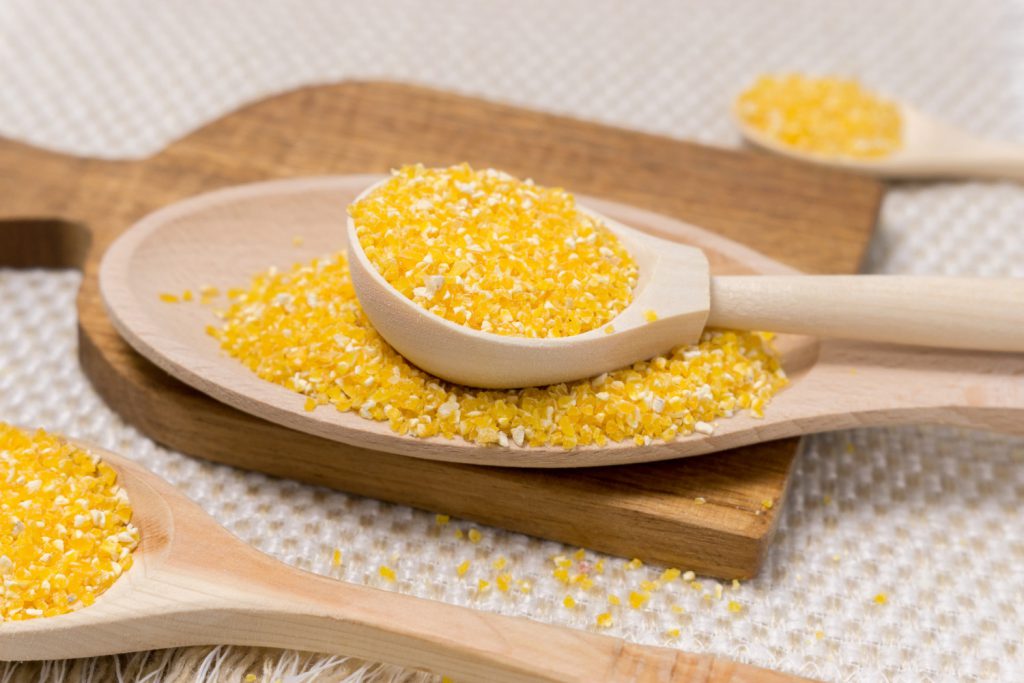
Staring at that bowl of leftover grits, the thought of feeding it to your dog so it won’t be a waste pops in, but is it a good idea to put these on top of your dog’s regular kibble to give them a special treat?
Or should we avoid feeding grits to our dogs in any way, shape, or form?
We suspect that at one point or another, you’ve made some grits and wanted to share it with your dog. Dogs tend to eat everything and anything they sniff at. If your dog is not that kind, then you should be a proud dog parent! And considering that our favorite canines have super powerful noses, an answer about sharing grits with them once in a while may be why you are here!
You might also like our recent review on the best dog food for blue heeler which is available on the separate page.
Can Dogs Eat Grits
Regular grits have no toxicity, but sadly that’s pretty much where the good news ends. Dogs can not eat grits because some ingredients in grits can be very harmful to your dog.
Grits are a common side dish for dinners and even breakfasts. With their rich, creamy texture and delicious flavor, it’s only natural for dog owners to wonder if our pups would like them just as much as we do.
As a trendy food in many parts of the U.S., many of us have a box of grits lying inside the cupboard in our house. If you’re looking for something to give your dog a special treat or bulk out the last of the dog food before you restock, are grits something that you should feed your dog?
The answer remains ‘no.’ Grits are in no way beneficial or suitable for your furry buddy to consume, so it’s best to avoid feeding them to you intentionally as much as possible.
How Grits are Made
Grits are made from corn, which can be difficult for dogs to digest when ingested, and some dogs are allergic to corn. For most dogs, grits won’t cause a problem, so they consume empty calories with no nourishment.
The corn used in grits is usually processed to remove the outer layer, or pericarp, and be soaked in an alkaline solution to remove aflatoxins. They’re very high in carbohydrates content but low in protein. Unfortunately, this is the exact reverse of what your dog needs!
Facts: Why Dogs Cannot Consume It?
Unlike humans, dogs don’t really need to consume a high carbohydrate diet to thrive and have a healthy life. But that doesn’t mean that dogs can’t benefit from carbohydrates. Most importantly, we should make a distinction between healthy and unhealthy carbohydrates.
While healthy carbohydrates can come from fruits and vegetables, unhealthy carbohydrates come from starches and grains like wheat and corn. Because these carbohydrates don’t have a lot of nutritional value, and they can raise your pup’s blood sugar if consumed inappropriately.
Grits for some are considered safe for dogs to eat but only in small servings (if your dog doesn’t have a corn allergy or a weight problem).
They’re essentially empty calories and not particularly good for dogs; grits might be considered safe for dogs to eat on rare occasions. The key to feeding your dog the occasional spoonful of grits is that there must no added ingredients at all.
If you do decide to serve your dog grits, serve them cooked and unseasoned. No butter, sugar, syrup, cheese, salt, pepper, or other sugary or fatty ingredients.
You might have questions can Can Dogs Eat Jello? and Can Dogs Eat Maple Syrup? to know the answers and right quantity that you can feed to your dog you must visit these resources.
Do Grits Pose Any Fatal Threat To Dog?
It’s important to remember that even with the best intentions, accidents can happen, and dogs, as lovely as they are, can easily eat things they shouldn’t. Unfortunately, even if those accidents aren’t fatal, they can result in huge, unexpected veterinary expenses.
That’s why we recommend all responsible dog owners keep an eye on what they feed their pets every time, just as much as they take care of their own personal diet.
With all considered, grits are still not particularly good for your dogs. With minimal nutritional value, they are essential “filler” and just empty calories. Grits are just a form of corn that acts as a filler material in many commercial dog foods.
This is why if you are going to feed your dog grits, only do it on the rarest of occasions. Like humans, the more “junk food” you feed your dog, the more they will continuously want it, potentially leading to weight gain and other related health issues down the road.
How Much Grits Are Safe For Dogs
We know that grits aren’t something we should feed our dogs intentionally, but what if they steal some or quickly gobble up grits that have fallen off the table before you get a chance to clear them up? If your dog eats a small number of grits, it shouldn’t do them any harm. We’re talking about a mouthful or two here.
The empty calories and high carbohydrates shouldn’t do your dog any harm in the long run. If they manage to a lot eat more than that, it’s a good idea to keep an eye on your pet buddy over the next 24-48 hours and watch for any unusual behaviors.
If your dog vomits, has diarrhea, is lethargic, or does anything else that feels worrisome to you, we recommend calling your vet and seeking their immediate help or advice. Bear in mind that grits are almost always seasoned with salt, pepper, butter, cheese, syrup, or sugar, and none of these seasonings are good for your dog.
Can Dogs Eat Plain Grits
So, if your dog eats a small number of plain grits, you can feel less concerned than if they’ve eaten a whole bowl of grits heavily seasoned with butter and salt. Grits shouldn’t ever be fed intentionally to your pup. Other foods are far better for them if you’re looking to give your dog a treat. A dog cannot have even plain grits.
Avoid giving your dog sugar grits as much as possible. Sugar is an ingredient that dogs should avoid at all costs. It can lead to excessive weight gain and make blood sugar levels difficult to manage. Dogs that eat a diet high in sugar are at a higher risk for diabetes.
Wrap Up
Keeping an eye on your pup and not allowing them access to the kitchen when you’re preparing food or leaving them unattended with leftovers should mean our dog is far less likely to come across a bowl with leftover grits.
As most of us pet parents know, it’s up to us to try and stop our dogs from helping themselves to something they shouldn’t!
Sure, you can find positives things to say about grits.
For one, there is plenty of vitamin B-6.
Grits also have folate and amino acids. The pros, however, do not outweigh downsides for dogs.
It’s best to avoid letting your dog eat grits. Even though considered safe for dogs, they are made from corn which is nothing but empty calories. If dogs eat grits once, they will probably be just fine. Just be careful and make sure this doesn’t become a normal part of their diet.
Never take risks on your dog’s healthy gut! Try oats rather than grits! Enjoy a healthier lifestyle with your dog’s healthy diet plan! If you want to offer him/her some healthy snacks or treats, try some fruits with commercial dog foods!
